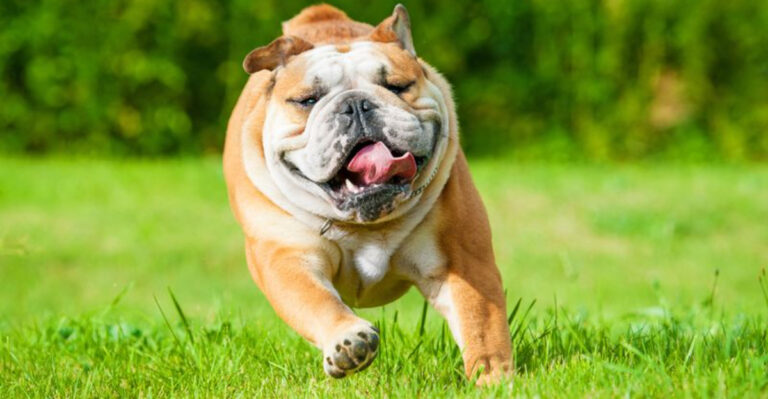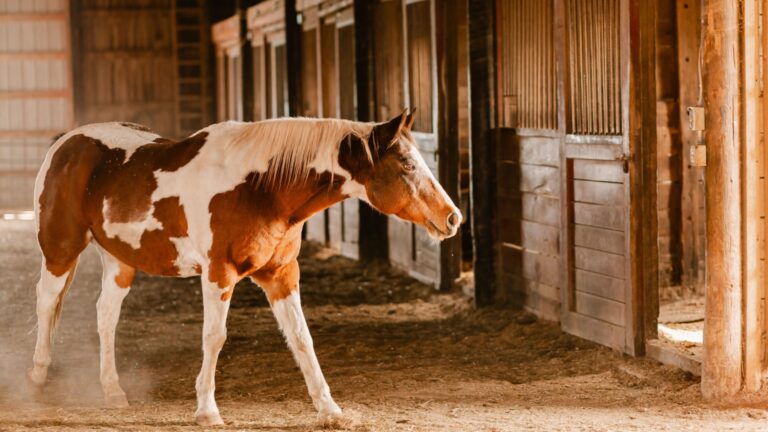14 Surprising Health Benefits Of Horseback Riding
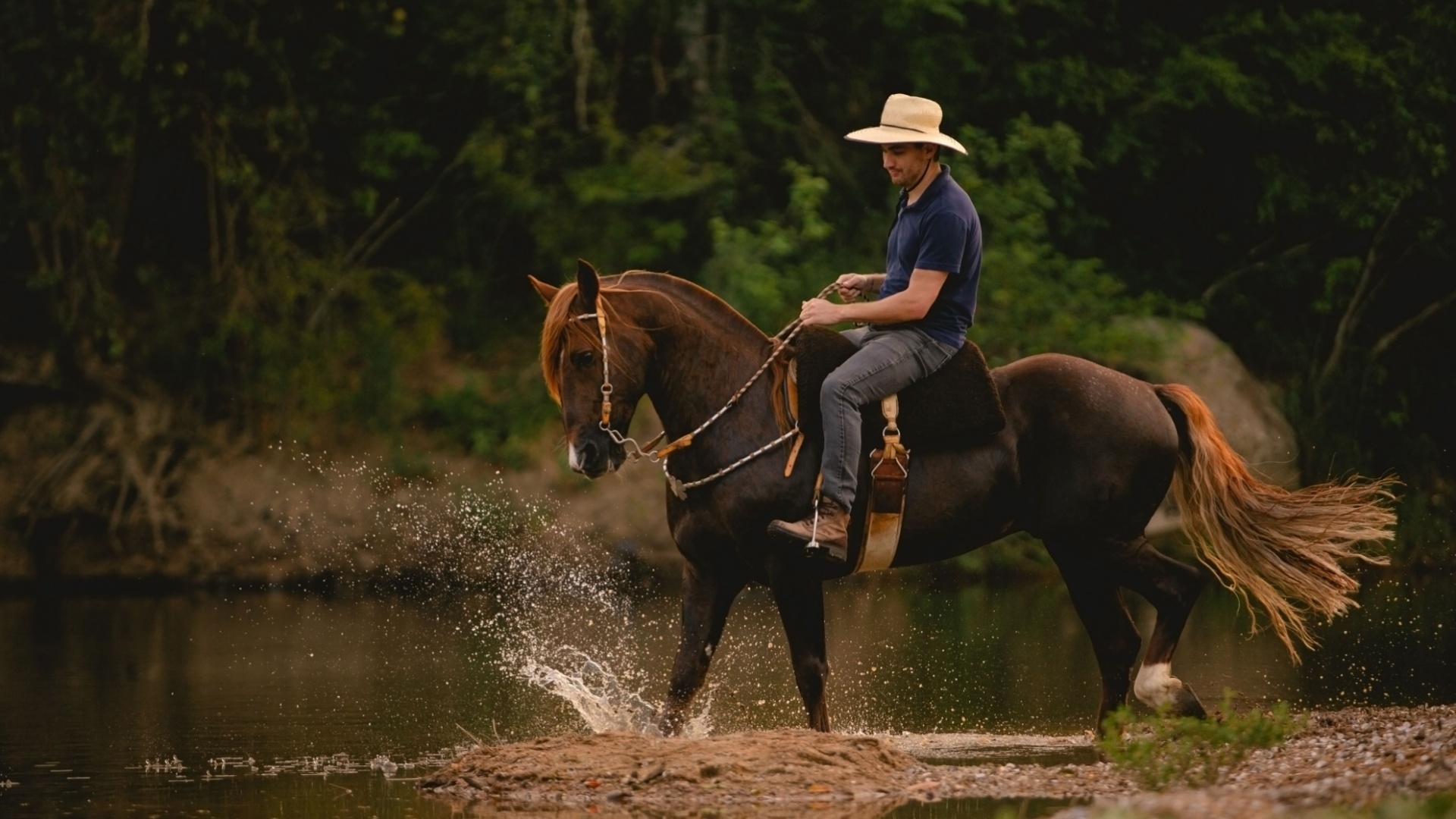
Horseback riding is more than just a thrilling adventure. It’s a complete mind and body workout that offers numerous health benefits, often surprising even the most seasoned riders.
Whether you’re trotting along a scenic trail or galloping in an arena, each moment spent on horseback can contribute positively to your well-being.
Embrace the unexpected advantages of this timeless sport and discover how it can elevate your lifestyle.
1. Improves Core Strength
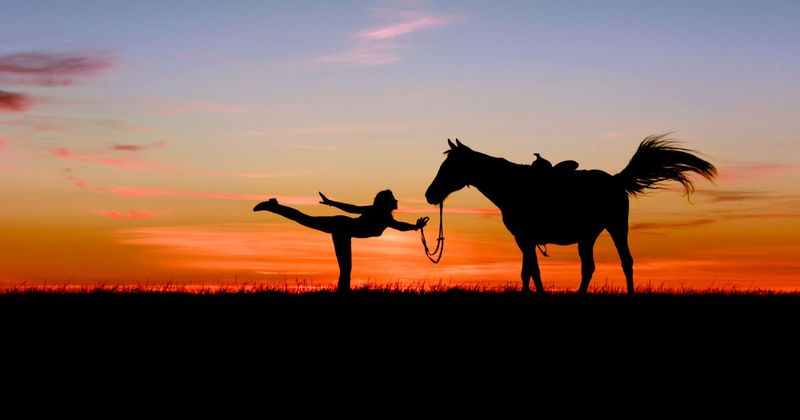
One of the primary benefits of horseback riding is the improvement in core strength. Riding a horse requires maintaining balance, which engages the core muscles. As you navigate different terrains, your core works hard to stabilize your body, enhancing abdominal and lower back strength.
Each movement of the horse demands subtle shifts in your posture, encouraging constant engagement of your core. This continuous adjustment helps tone muscles that may otherwise be neglected in everyday activities. Riders often find a noticeable increase in their overall core stability and posture.
Beyond physical fitness, a strong core also contributes to better balance and coordination, both crucial in daily life. With regular riding, these benefits extend beyond the saddle, making daily tasks easier and more manageable. Horseback riding, therefore, offers a unique and enjoyable way to develop these essential attributes.
2. Boosts Mental Health
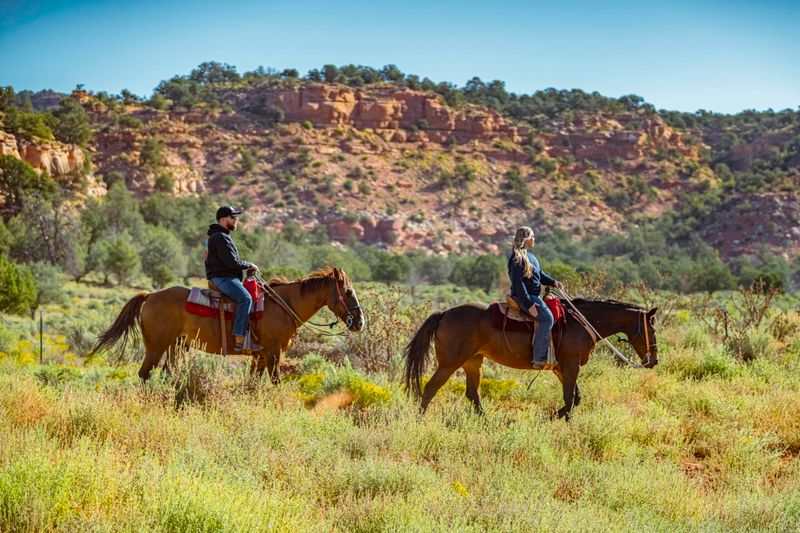
Horseback riding is not just a physical activity; it also has profound effects on mental health. The bond formed between rider and horse can be therapeutic, offering emotional support and reducing stress. This connection with a gentle giant often leads to increased feelings of happiness and relaxation.
Engaging with nature during rides provides a break from the hustle of daily life, allowing riders to clear their minds and focus on the present. This meditative aspect of horseback riding can significantly alleviate symptoms of anxiety and depression.
Moreover, the sense of accomplishment and confidence gained from mastering riding skills further enhances mental well-being. Each ride presents new challenges and achievements, boosting self-esteem and promoting a positive outlook on life. Horseback riding, therefore, serves as a powerful tool for nurturing mental health and emotional resilience.
3. Enhances Flexibility
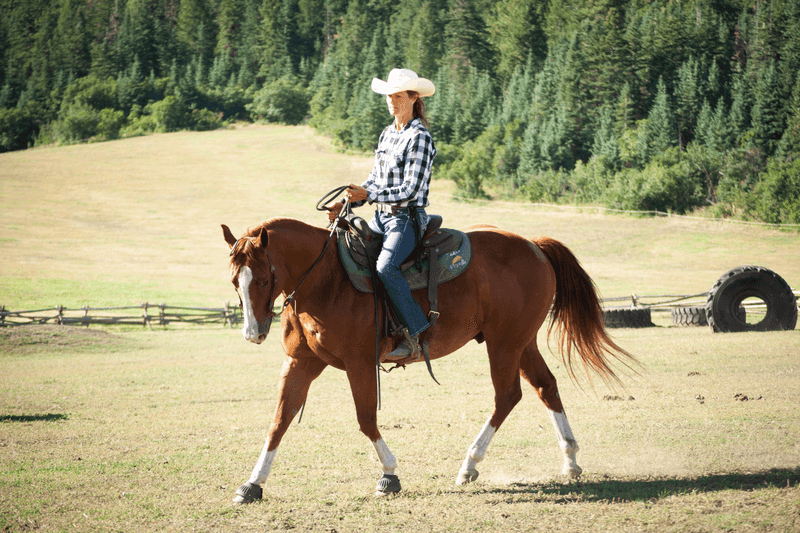
Horseback riding naturally enhances flexibility as riders constantly adjust their position to harmonize with the horse’s movements. This dynamic activity requires the use of various joints and muscles, particularly in the hips and legs, promoting greater range of motion over time.
Riders often perform stretching exercises before and after riding, which further contributes to increased flexibility. These stretches help prepare the body for the physical demands of riding and aid in recovery afterwards. Regular riding and associated stretching routines can significantly improve overall flexibility.
Additionally, enhanced flexibility reduces the risk of injury and improves overall performance in other physical activities. As riders adapt to the fluid motions of horseback riding, they cultivate a supple body capable of graceful movements. This newfound flexibility not only benefits riding but also enhances everyday life, making tasks more manageable and comfortable.
4. Strengthens Legs
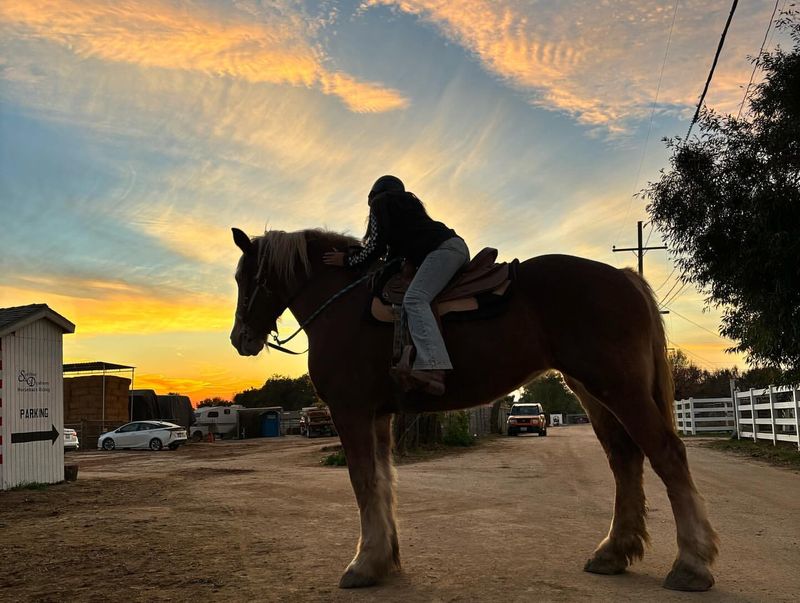
Riding a horse is an excellent workout for the legs, demanding consistent use of various leg muscles to stay balanced and in control. The adductors, quadriceps, and calves are heavily engaged, leading to stronger, more toned legs.
As you ride, maintaining the correct posture and position requires constant muscle engagement. This regular exertion builds endurance and strength, particularly in the lower body. Riders often notice improved muscle definition and performance in other physical activities.
The benefits of stronger legs extend beyond riding. Daily tasks such as walking, climbing stairs, or carrying heavy objects become easier with increased leg strength. Horseback riding provides a fun and effective way to develop this strength, enhancing both athletic ability and quality of life.
5. Encourages Social Interaction
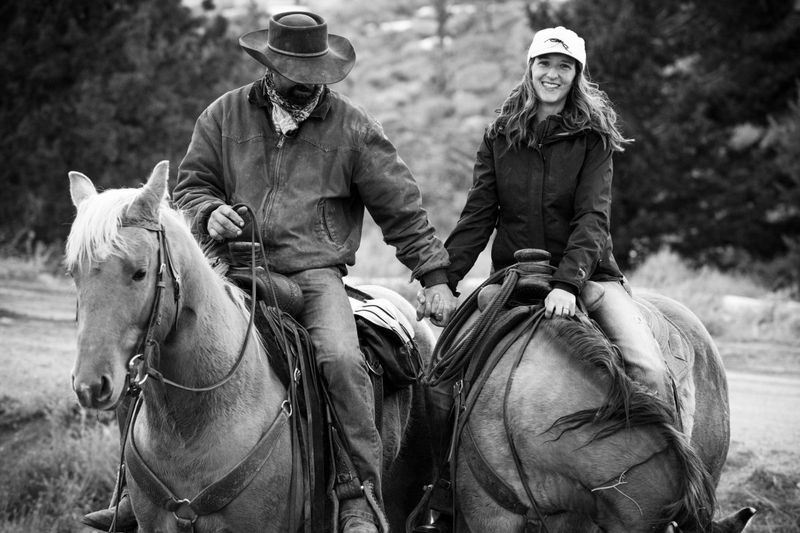
Horseback riding often involves a community of enthusiasts, offering numerous opportunities for social interaction. Whether participating in group lessons, trail rides, or equestrian events, riders frequently connect with others who share their passion.
This social aspect is particularly beneficial for those looking to meet new people and develop friendships. Engaging in conversations about riding techniques, horse care, and shared experiences fosters a sense of camaraderie and belonging.
Social interaction through horseback riding extends beyond the saddle. Many equestrian centers host events and gatherings, providing additional opportunities for riders to socialize and strengthen their connections. These interactions can significantly enhance mental well-being, offering support and companionship within the equestrian community.
6. Promotes Cardiovascular Health
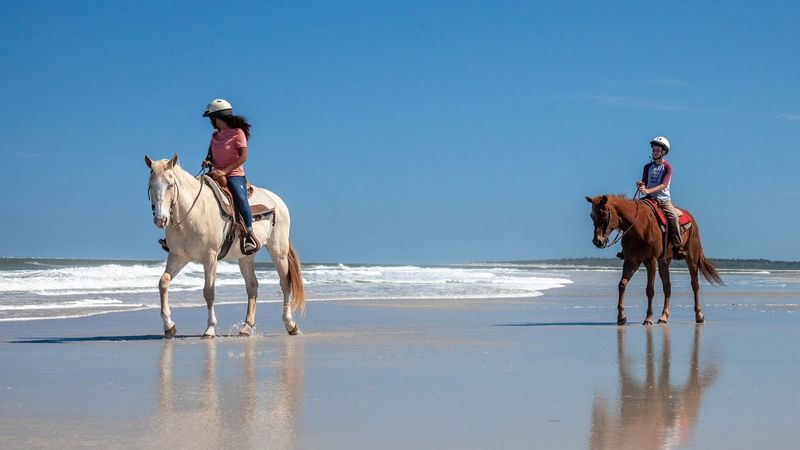
Horseback riding is a dynamic activity that promotes cardiovascular health by increasing heart rate and enhancing circulation. Depending on the intensity of the ride, it can serve as an effective cardiovascular workout, comparable to jogging or cycling.
Riding at different speeds and terrains engages the cardiovascular system, improving heart and lung function. This increased physical activity strengthens the heart, reduces the risk of heart disease, and boosts overall stamina.
Additionally, the combination of physical exertion and the calming effects of nature reduces stress and promotes relaxation. This dual benefit makes horseback riding a uniquely enjoyable way to maintain cardiovascular health, enhancing both physical fitness and mental well-being.
7. Improves Coordination
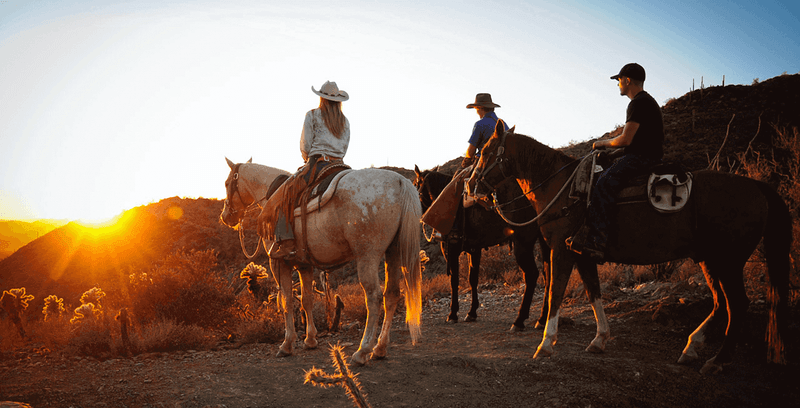
Horseback riding requires a high level of coordination, as riders must harmonize their movements with the horse. From steering to maintaining balance, every aspect of riding demands precise control and timing.
As riders progress, they develop a keen sense of body awareness and coordination. This skill is not only essential for riding but also beneficial in daily life, improving the ability to multitask and manage complex movements.
Learning to coordinate with a horse enhances cognitive abilities, as riders must constantly assess and adjust their actions. This mental exercise strengthens neural pathways associated with coordination and timing, contributing to overall cognitive health and dexterity.
8. Increases Confidence
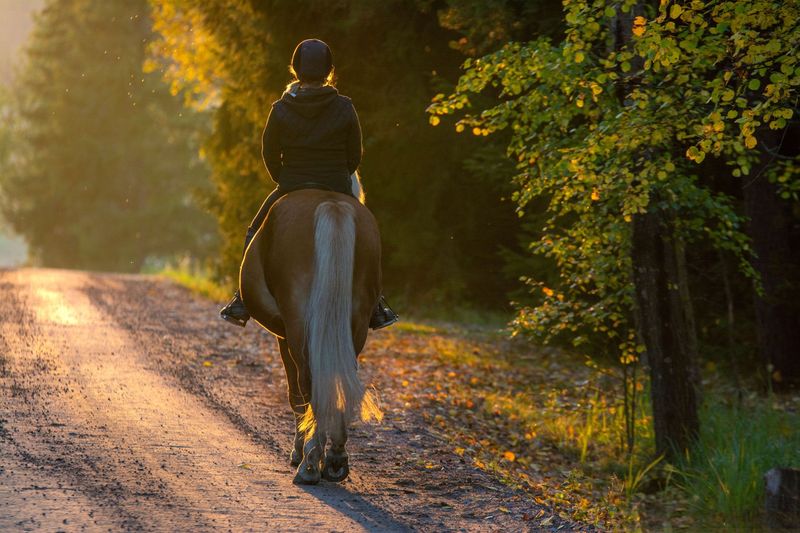
Horseback riding naturally boosts confidence as riders learn to master new skills and overcome challenges. Successfully guiding a powerful animal instills a sense of achievement and self-assurance.
Each ride presents new obstacles and opportunities for growth, encouraging riders to push their boundaries and develop resilience. This ongoing process of learning and improvement fosters a positive self-image and belief in one’s abilities.
The confidence gained through horseback riding extends beyond the arena. It influences various aspects of life, from personal relationships to professional endeavors. Riders often carry this newfound confidence into other areas, enhancing their overall quality of life.
9. Teaches Patience And Discipline
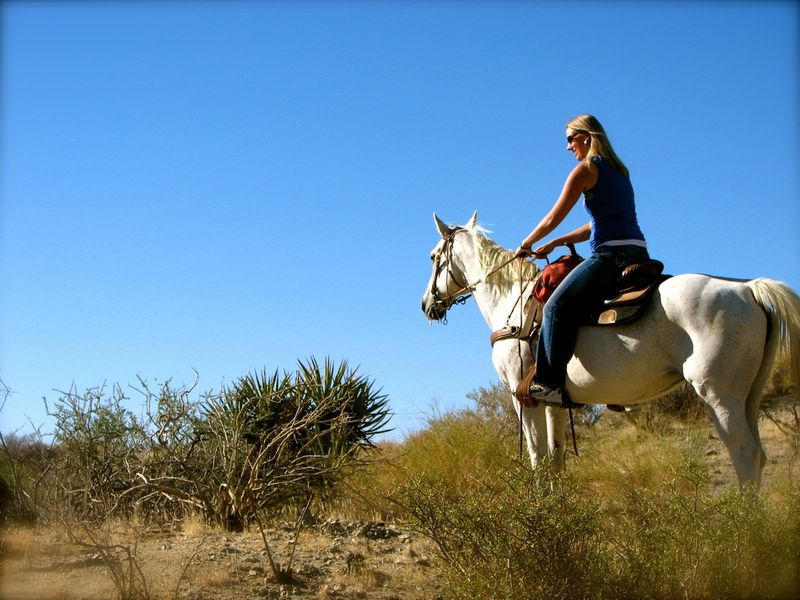
Horseback riding teaches important life skills such as patience and discipline. Training and riding a horse requires consistent effort and dedication, reinforcing the value of persistence and hard work.
Developing a trusting relationship with a horse involves understanding and respecting its unique personality and needs. This process teaches riders the importance of patience, as progress often requires time and gentle encouragement.
Through regular riding and training sessions, individuals learn to set goals and work diligently to achieve them. These lessons in patience and discipline are invaluable, promoting personal growth and development both in and out of the saddle.
10. Reduces Stress

Horseback riding is a wonderful stress reliever, offering a tranquil escape from daily pressures. The rhythmic motion of a horse and the surrounding natural beauty create a calming environment that soothes the mind and body.
Interacting with horses has been shown to lower cortisol levels, reducing stress and promoting relaxation. This connection with nature and animals fosters a peaceful mindset, helping riders manage anxiety more effectively.
Additionally, the focus required during riding diverts attention from stressors, providing a mental break and promoting mindfulness. Horseback riding, therefore, serves as an excellent way to unwind and rejuvenate, enhancing overall mental health.
11. Fosters Empathy And Compassion

Horseback riding fosters empathy and compassion through the unique bond formed between rider and horse. Understanding and responding to a horse’s needs cultivates a deep sense of care and respect for these majestic animals.
This relationship encourages riders to become more attuned to the emotions and signals of their horses, enhancing their ability to empathize and communicate effectively. This skill translates into other areas of life, promoting better interpersonal relationships.
The act of caring for a horse, from grooming to feeding, reinforces the importance of responsibility and empathy. These experiences foster a compassionate mindset, contributing to personal growth and emotional intelligence. Horseback riding, therefore, offers a unique opportunity to develop these essential life skills.
12. Builds Trust
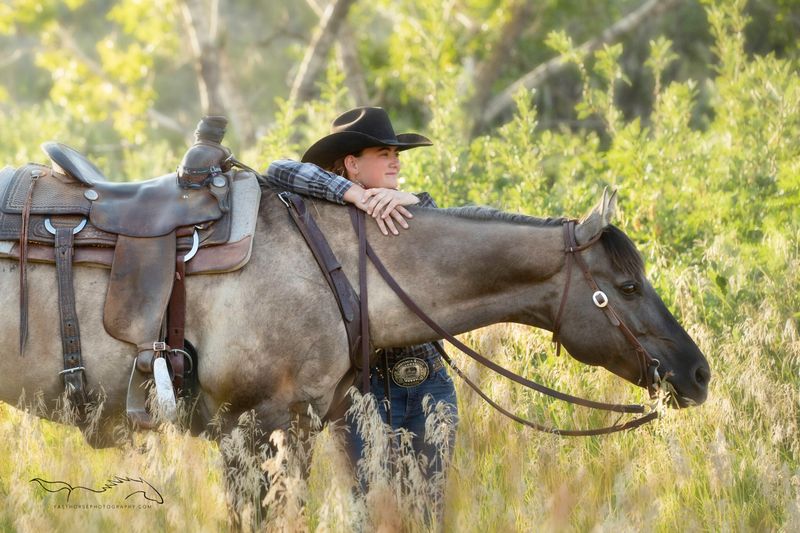
Building trust is a fundamental aspect of horseback riding, as riders must establish a strong bond with their horses. This trust leads to a harmonious partnership where both rider and horse work together effectively.
Trust is developed through consistent and gentle interactions, reinforcing positive behavior and communication. This relationship-building process teaches riders the importance of trust in all relationships, whether with animals or humans.
As riders learn to trust their horses, they also become more trustworthy individuals. This mutual trust enhances the riding experience and contributes to personal development. Horseback riding, therefore, serves as a powerful lesson in the value of trust and cooperation.
13. Encourages Outdoor Activity
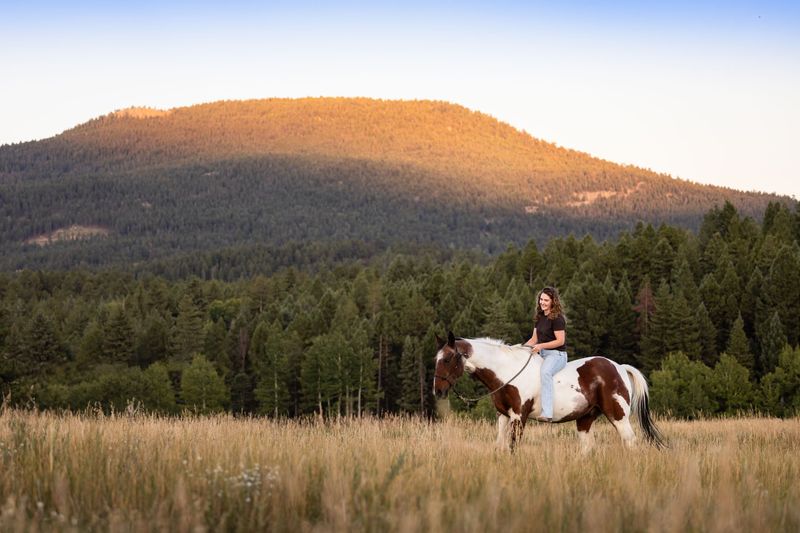
Horseback riding encourages outdoor activity, offering a refreshing alternative to indoor workouts. Riding through picturesque landscapes provides a change of scenery and a chance to connect with nature.
The outdoor element of horseback riding promotes physical activity in fresh air, enhancing overall health and well-being. It encourages riders to explore new environments and enjoy the beauty of the natural world.
Engaging in outdoor activities boosts mood and energy levels, reducing the risk of depression and enhancing mental health. Horseback riding, therefore, serves as an enjoyable way to incorporate outdoor exercise into one’s routine, benefiting both body and mind.
14. Aids In Rehabilitation
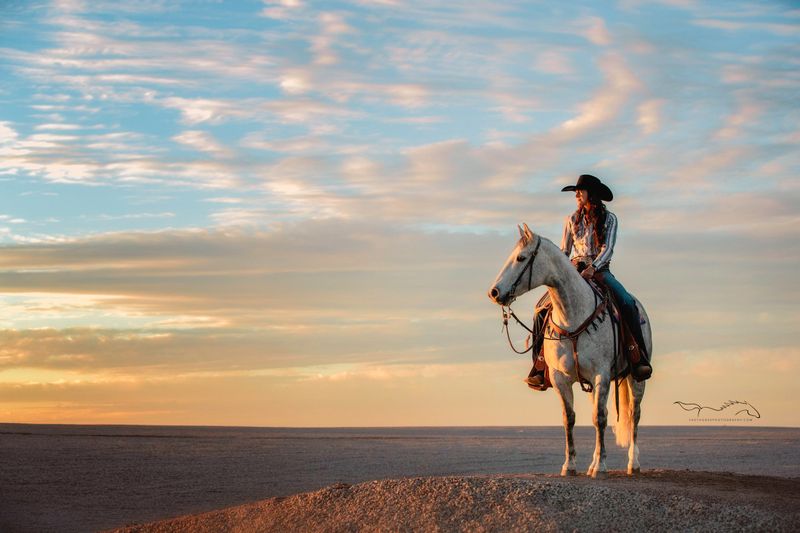
Therapeutic horseback riding, also known as hippotherapy, aids in rehabilitation for various physical and mental conditions. The gentle movement of the horse helps improve balance, strength, and coordination for individuals with disabilities.
Riding a horse provides sensory input that stimulates the nervous system, facilitating neurological and emotional healing. This therapy is especially beneficial for individuals with autism, cerebral palsy, and other developmental disorders.
The structured environment and supportive setting foster confidence and independence, contributing to overall recovery and well-being. Horseback riding, therefore, offers a unique and effective approach to rehabilitation, enhancing quality of life for many individuals.




